The consequences of low testosterone levels have been primarily investigated in middle-age and older men. However, low-T in young men aged 20-39 years can confer health risks as well…
Low total testosterone levels are associated with an adverse blood lipid profile, which includes high TG and low HDL [1, 2], and a decline in total testosterone levels predisposes men to increased risk of cardiovascular disease (CVD) and mortality.[3-7]

In a notable study 1468 men aged 20–79 years were followed for 5 years to investigate if baseline total testosterone levels might be related to future development of an adverse lipid profile (aka dyslipidemia).[8]
When all age groups were analyzed as whole, those men with the lowest total testosterone levels at baseline were found to have an increased risk to develop of an adverse lipid profile by 28% compared to the men with the highest baseline total testosterone levels.
More interestingly, age-specific analysis revealed that young and middle-aged men (20–39 years) with the lowest baseline total testosterone levels had the highest risk of incident dyslipidemia. Compared to age-matched men with the highest baseline total testosterone levels of 663 ng/dl or higher, those with the lowest baseline total testosterone levels of 418 ng/dl or below had on average a 51%, and up to a twofold, greater risk of developing an adverse lipid profile that in turn could contribute to future risk of cardiovascular disease.[8]
This study shows that testosterone levels have health implications for men of all ages. Since treatment of low-T with testosterone replacement therapy (TRT) has beneficial effects on blood lipids and cardiovascular risk factors [9-11], this study further underscores the importance of early detection and treatment of low-T in men regardless of age.
References:
1. Agledahl, I., et al., Low serum testosterone in men is inversely associated with non-fasting serum triglycerides: the Tromso study. Nutr Metab Cardiovasc Dis, 2008. 18(4): p. 256-62.
2. Makinen, J.I., et al., Endogenous testosterone and serum lipids in middle-aged men. Atherosclerosis, 2008. 197(2): p. 688-93.
3. Haring, R., et al., Low serum testosterone levels are associated with increased risk of mortality in a population-based cohort of men aged 20-79. Eur Heart J, 2010. 31(12): p. 1494-501.
4. Morris, P.D. and K.S. Channer, Testosterone and cardiovascular disease in men. Asian J Androl, 2012. 14(3): p. 428-35.
5. Wu, F.C. and A. von Eckardstein, Androgens and coronary artery disease. Endocr Rev, 2003. 24(2): p. 183-217.
6. Lin, J.W., et al., Metabolic syndrome, testosterone, and cardiovascular mortality in men. J Sex Med, 2011. 8(8): p. 2350-60.
7. Araujo, A.B., et al., Clinical review: Endogenous testosterone and mortality in men: a systematic review and meta-analysis. J Clin Endocrinol Metab, 2011. 96(10): p. 3007-19.
8. Haring, R., et al., Prospective association of low total testosterone concentrations with an adverse lipid profile and increased incident dyslipidemia. Eur J Cardiovasc Prev Rehabil, 2011. 18(1): p. 86-96.
9. Saad, F., Androgen therapy in men with testosterone deficiency: can testosterone reduce the risk of cardiovascular disease? Diabetes Metab Res Rev, 2012. 28 Suppl 2: p. 52-9.
10. Saad, F. and L.J. Gooren, The role of testosterone in the etiology and treatment of obesity, the metabolic syndrome, and diabetes mellitus type 2. J Obes, 2011. 2011.
11. Traish, A.M., et al., Long-term testosterone therapy in hypogonadal men ameliorates elements of the metabolic syndrome: an observational, long-term registry study. Int J Clin Pract, 2013.


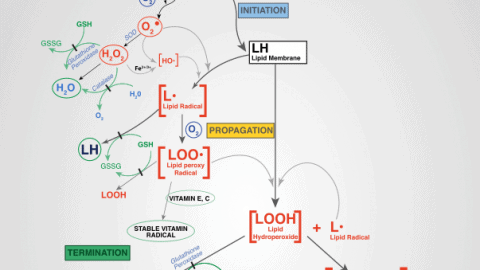
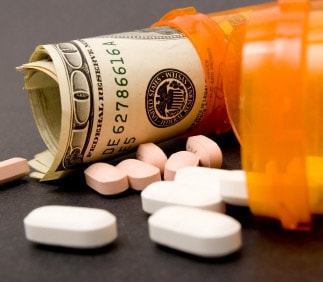

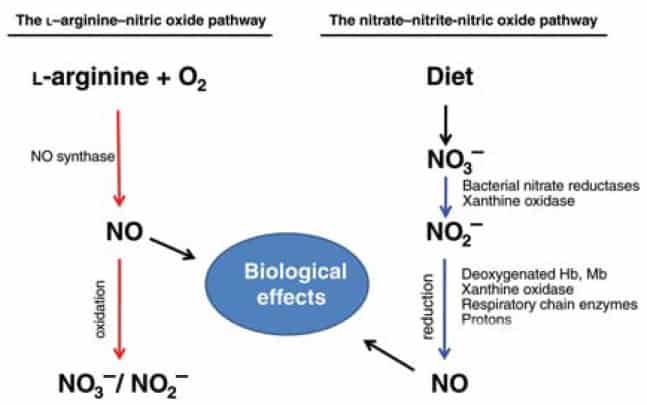
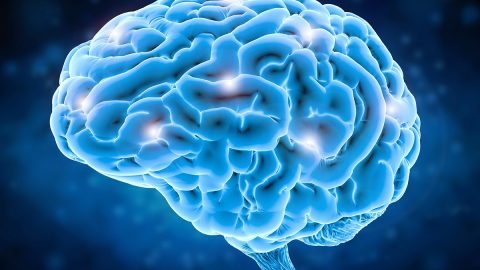
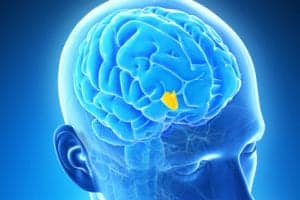

More and more doctors need to read this type of research. I don’t think your average GP realises how important testosterone levels are in there patients. It’s a lot easier to get other drugs than get TRT especially in younger men. GP’s (in UK, can’t speak for other countries) would rather treat symptoms like CVD than prescribe TRT and treat the cause, if low testosterone is part of the problem.
Yes, it is sad that old school mainstream GPs only care about treating symptoms and prescribe all kinds of medications, rather than dealing with the root causes. It’l like that in the US as well.
All true, but it’s improving slowly as the data continues to grow. However, being willing to treat Low T levels, is far different than being well versed in it. I find many docs that do treat for it, don’t do a very good job of it, so it’s a double issue. Comes under “better than nothing.”
Finding a doc willing to treat it, who is also competent, a true needle in the proverbial haystack as they say. I advise some docs on that issue myself, some for their own personal TRT/HRT.
So, there is an improved trend in this area, but it’s also attracting a lot of scam artist/quick $$$ types too, so good comes with some bad as usual. Best articles/info you will find on the ‘net are in BZ here, but I’m a tad biased 🙂
Will – Thanks for ALL you are doing in the area of Low-T and TRT. I am the poster boy for this article. I am now 39 and have been on TRT for 1 year now. I was severely low (158) and was having difficulty finding a PCP that could/would treat me. Crazy thing is I live in the Philadelphia metro area with some pretty major academic medical centers and I have been hard pressed to find any (advertised) PCP’s that specialise in the treatment of Low-T while still accepting health insurance. Are you familiar with any doc’s in my area or do you know of someone that could recommend me to a qualified Doc. Thanks again for what you and Monica are doing to educate the masses on this very important subject.
Paul
Thanks for sharing your story.
Your case also supports the view that the term “Late Onset Hypogonadism” or
LOH should not be used as hypogonadism can affect young men also.
There are a few good clinics around, but I believe most won’t take insurance.
Monica,
Thanks, I am really looking forward to your next article. Since my comment yesterday I have found an Endocrinologist that specializes in Low-T and made an appointment. What specifics should I be looking for in a provider and what testing should I be expecting or should request. Some more background: I believe my Low-T issues are a combination of physical and traumatic etiology. in 2009 I was dx with bilateral vericoeles and hydroceles after complaining of intermittent pain and discomfort I don’t know if my low t was evident then but looking back I do believe I had symptoms. In Sept 2009 I had Sx to repair the above with addition of a vasectomy. Thereafter I had a very gradual onset of Low-t symptoms which manifested themselves in Dec 2013 with severe depression, mood swings, physical activity intolerance, TG of 679, HDL of 9, Hgb A1C 6.5 and my weight went from 210 to 240 and most of it was in my abdomin. I have seen great benefits since starting treatment but want to make sure I am receiving the best and most efficient care possible.
Thanks again,
Paul
Paul,
There was no link to reply to your 11:17 am post so I am doing it here.
Vericoles decrease O2 supply to the testes and impact the production of testosterone by the leydig cells before the estrogen producing sertoli cells. This results in low T and higher E2 that causes the symptoms you mentioned. It sounds like you are following the correct course of action.
Endocrinologist’s typically practice “conservative endocrinology”. In other words, they treat you when the problem is acute and there is a quick fix or the chronic problem is severe. They generally are not concerned with optimizing health/quality of life or taking steps to prevent future degenerative disease. This mentality is based on lack of training, custom/tradition, researcher bias/ignorance, standard of care/risk management and politics. It’s not unusual to hear a highly educated scientist such as a physician say something like “the consensus among endocrinologists is that we don’t manage estradiol in men”. Of course consensus is a process where you define a problem and vote (a political concept). The consensus is based on the majority and to make matters worse consensus implies looking at each side’s opinion and then compromising to reach agreement. You will not find consensus in the scientific method and it is contrary everything we know and understand about science. Sadly, the Endocrine Society’s Practice Guidelines start with a consensus statement.
I’m not the slightest bit surprised that in an educated community you are having problems finding a doc that is well informed. Physicians are trained the same way across the county and all the things I mentioned about the practitioner apply to the researcher. We know this by looking at the ridiculous studies that are based on sloppy science. Don’t forget that universities are not open to free thinking. They are really only welcoming to those that agree with their opinion.
Don’t even bother trying to change the mind of a doc that practices as I mentioned above. It’s too risky for them. Your best bet is to find someone that has an impeccable reputation that also has an interest in bio-identical hormone replacement. Unfortunately there is a very good chance that it will be a private pay scenario.
How do you know if your guy knows what they are doing?
1. If they use the word consensus when you ask them if they actively manage estradiol in men with T therapy – leave;
2. If they manage estradiol in men with T therapy – minimally qualified;
3. If they know that it’s critical to aggressively monitor/manage cortisol when treating any patient with thyroid, growth hormone or IGF-1 – ultimately qualified. Top 0.5%.
Will, your site is one of the few I read regularly and comment. I also agree that the articles you post are highly relevant and accurate. Of course when you are this close to the envelope there wikl be disagreement from time to time.
I have made a few attempts to spark debate regarding the other major hormones with no takers. Since we are dealing with an endocrine system with various hormones that decline with age, it makes sence to to me to cover more than just the androgens. An interesting trend is starting to emerge from those practicing at the cutting edge: correcting all hormonal deficiencies increases efficacy of treatment and lowers dosingg requirements of individual hormones. Lowering dosing requirements can lead to fewer side effects. So, hormones that may not nexessarily be linked to performance can increase the effectiveness of the performance enhancing constituents. Of course there are significant health benefits to this practice.
Jim, you’re right on about the importance of correcting all hormonal deficiencies.
I’d add imbalances as well.
My next article “Multiple Anabolic Hormone Deficiencies & Imbalances ”
will cover this important aspect. Stay tuned. 🙂
Monica – not surprising, with all the BPA out there, as well as all the micro additives in everything we use, from deodorant to shampoo. Plus, most of these young guys are big into aerobics, particularly running, which tends to lean out muscle. I think it is important to realize also a routine trip to the urologist automatically gets you Viagra or Cialis, without even the check for low DHEA or high estrogen levels. It’s a quick fix, but gets nothing for the long haul.
I’d say the main culprit of low-T in young men is excessive alcohol drinking and excessive body fat levels (especially around the waist).
Hi Monica,
I agree that low T is associated with degenerative disease, mortality etc. I have a question regarding
the article. In a previous article you wrote titled:
“Blood Testing – don’t let the simple numbers fool you”
You indicated (and I agree) that there is far more to evaluating cholesterol than hdl, ldl, total and triglycerides.
Did the authors of this study tie elevated cardiovascular risk associated with cholesterol criteria that may not necessarily be clearly associated with cardiovascular disease? In other words do we need VAP testing to proper assertain risk?
This study use the following definitions for dyslipidemia:
Dyslipidemia was defined based on guidelines found in
the third report of the National Cholesterol Education
Program Adult Treatment Panel III [27]. We considered
men with concentrations of TC >6.2 mmol/l, or LDL
>4.1 mmol/l, or HDL <1.04 mmol/l, or use of antilipidemic
medication to be dyslipidemic. Alternative
definitions of dyslipidemia were based on guidelines from
the World Health Organization: HDL <0.9mmol/l or TG
>1.7mmol/l [29]; the International Diabetes Federation:
HDL <1.04mmol/l, or TG >1.7mmol/l, or use of lipid
medication [30];
There is a variety of definitions for dyslipidemia, each including different lipids with different recommended cut-off values. However, this study found similar risk patterns emerging across different definitions.
To answer your question; this study did not look at more advanced lipid/lipoprotein parameters that are provided by VAP or NMR panels. It was a cross-sectional and longitudinal study. Advanced labs are more common in intervention studies. Hopefully we will see more data on T and TRT and lipoprotein subfractions, particles etc in the near future.